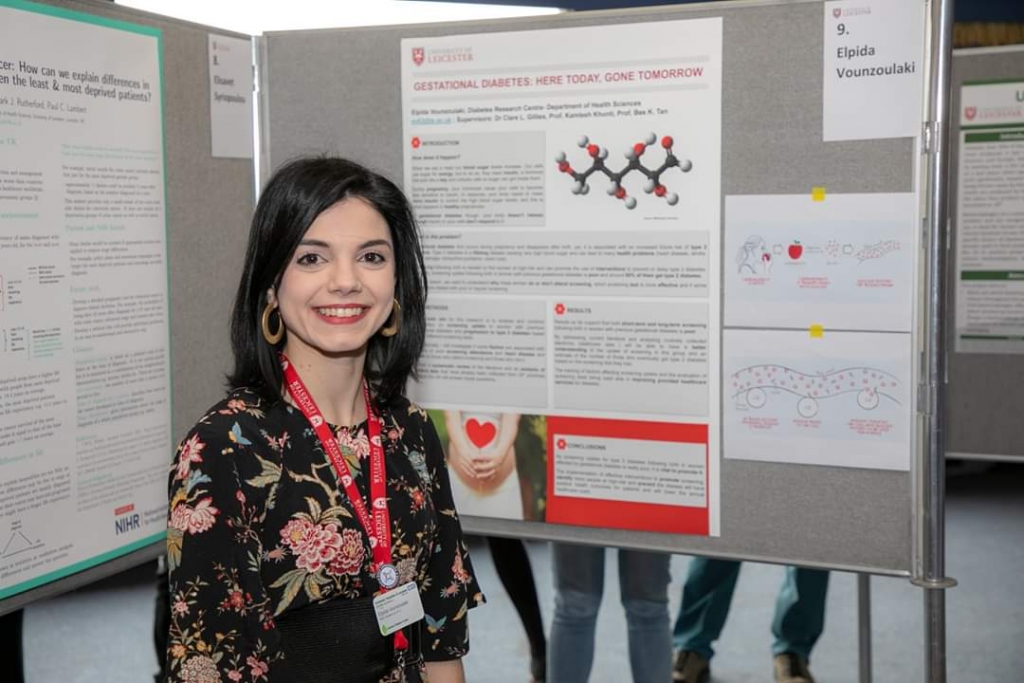Hello! My name is Elpida and I am a PhD student in Diabetes Epidemiology, about to start my third PhD year. My research focuses on preventing type 2 diabetes in women who had gestational diabetes. Gestational diabetes is high blood sugar that first occurs during pregnancy and goes away after birth. However, women who had gestational diabetes have an increased risk of being diagnosed with type 2 diabetes in the future. Type 2 diabetes is a lifelong disease causing very high blood sugar and can lead to many health problems. By doing this research I aim to aid healthcare professionals in improving the quality of provided health services, promote further research in the field and inform policymakers in real-time decision making.

I work as part of a multidisciplinary team of clinicians, epidemiologists/statisticians and data analysts, the Leicester Real World Evidence Unit. As I am doing epidemiological research, my PhD involves working with data from large patient databases, collected from general practices and hospitals across the UK. I find my PhD particularly fascinating because it allows me to combine my clinical knowledge with statistics, to answer important clinical questions and develop a variety of new skills.
Doing a PhD is absolutely one of the best decisions I made in my life! Being extremely curious and passionate about education, I feel really privileged that I have the opportunity to create new knowledge and slowly become an expert in my field.

The biggest challenge I was faced with during my PhD was definitely the COVID-19 pandemic. As all PhD students across the world, I had to push deadlines back, re-arrange my work and come up with strategies to work efficiently and manage my time while working from home.

The Diabetes Research Centre at the University of Leicester is a diverse and very supportive environment. I am lucky enough to work alongside world-class experts in the field of diabetes who give me the opportunity to reach my full potential and develop a wide range of skills.
I am very passionate about communicating science to the public and making it accessible. I often visit schools or take part in events as a speaker, being an active STEM Ambassador for the WISE campaign and STEM UK. I hope that by doing so, I can inspire young people to follow a career in science and research. In my free time I also enjoy playing music and singing, doing exercise, reading books and participating in theatre performances- being a member of the Leicester University Theatre society.

Follow her on Twitter, ResearchGate and LinkedIn, and read her papers using the links below:
Twitter | ResearchGate | LinkedIn

